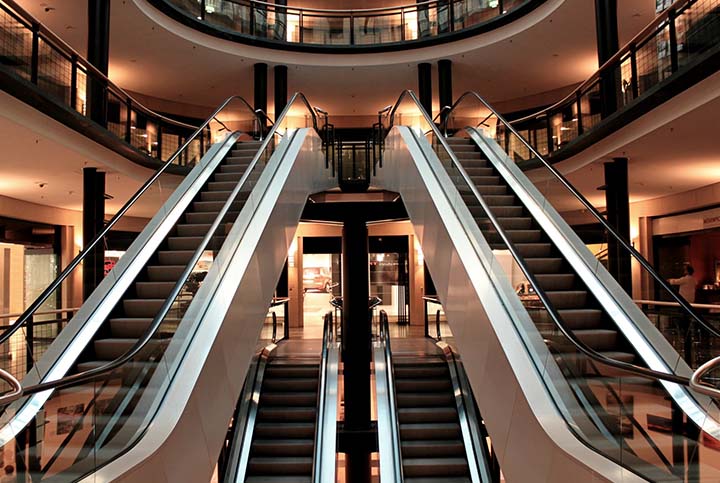The Internet of Things (IoT) is a term used to describe the incorporation of internet connection into devices and appliances that previously did not have such additional function.
Connected hotels with smart hotel rooms are springing up all over the world, and entrepreneurs in the hospitality sector are constantly inventing and upgrading IoT-led solutions. Many firms in the hospitality sector have already implemented the Internet of Things into their operations because the technology provides a number of critical benefits that are particularly relevant to hotels. In the context of the hospitality industry, IoT assists with aspects like food preparation and refrigeration monitoring, lighting, Heating, Ventilation, & Air Conditioning (HVAC) control, motion and humidity sensing, and immediate notification of failures in even the most seemingly banal of devices can be achieved. Ultimately, the objective of an IoT hotel room is to provide visitors a more pleasant environment, more control over their experience, and for the organisation to operate more efficiently.
The ways IoT can enhance the outcomes hospitality organisations seek are myriad;
Custom Guest Experiences
To date, the primary use of IoT in hotel management has been hyper-personalization. Hilton and Marriott, for example, have experimented with slightly different takes on the ‘connected room’ concept, in which guests may manage several of the room’s amenities via their cell phone or a supplied tablet.
The guest can manage the HVAC systems from a single location, or it may just allow them to select a temperature and let the different equipment to automatically regulate the space to that temperature. It will also usually allow them to operate the television, and with returning guests, they may have most of the settings for their comfort automatically applied, and this can even extend globally throughout various hotels that are part of a chain.
Maintaining a regular disinfection and cleaning regimen is critical when health concerns are at the forefront of your thoughts. It’s difficult to cater to the specific demands of each guest for essential consumables like soap, sanitisers, towels, and toilet paper. Facility managers may use wireless IoT sensors to detect when consumable supplies are running short in guest rooms, office centres, and fitness facilities for optimal inventory management and timely replacement, reducing waste, and the need for much of the manual involvement from staff traditionally required.
Being able to checkin and checkout automatically is a fantastic option for many. Couple this with the ability for personalised bar fridges, room service menus, and all tied to the guest’s historic preferences and behaviours is all possible.
Access & Logistics
Rather than using key that are frequently lost or stolen, visitors staying in smart rooms with IoT-enabled door locks can access their hotel room’s door using a secure app on their phone, or even non-personalised biometrics. Smart hotels can also be outfitted with IoT security solutions, with the the entire structure safeguarded through tailored protocols that can recognise threats. In the case of a security breach, programming is instantly sent to devices, activating door locks, emergency lights, contacting emergency services, and even smart routing for evacuating guests and staff.
Location-Based Information (LBI) sourced from GPS, Bluetooth, and allied beacon technologies can create new opportunities for leveraging LBI to send communications to consumers at the exact moment they are most relevant to the visitor. Imagine your flight is postponed, and before you even start to get ready, you’re notified that you’ve been provided a late check out. Conversely, if there are traffic reports that may lead to delays, perhaps your room alarm triggers 30 minutes earlier with a custom message letting you know why, and that your transfer has been notified and will be arriving to accommodate the change.
Repairs & Maintenance
In the event that a device or appliance malfunctions, IoT can organise repair or replacement before failure through identifying anomalous behaviours in their function. This, along with hotel personnel being provided with near real-time information about the operational condition of various equipment and appliances, means staff may take action immediately to either rectify, repair or replace the device in question.
Sustainability
After employees, energy is the second largest spending area for a hotel, accounting for 3 percent to 6 percent of hotel operating costs and roughly 60 percent of CO2 emissions. The Internet of Things (IoT) plays a critical role in ensuring that energy resources are used efficiently and in compliance with sustainability initiatives. Data from occupancy sensors in guest rooms, conference rooms, or recreational facilities, when combined with Building Automation Systems, can be used to automatically adjust room conditions such as HVAC, power, and lighting to optimise energy usage based on room status, such as checked-in rooms, occupied rooms, and unused rooms.
The Risks of IoT for the Hotel Industry
While there are countless advantages and benefits to utilising IoT-enabled devices in smart hotels, there are also hazards to adopting IoT technology in the hospitality sector.
IoT systems are prone to security breaches and hacking when they are not adequately secured, so first and foremost, any linked hotel environment must hold security in primacy. These possibilities should not cause hospitality organisations to be afraid of IoT adoption – it’s the inescapable path of their future. Rather, it should prompt hotel management to consider how they might capitalise on the tremendous benefits of IoT in hospitality while avoiding risks as much as possible. Best practises reduce risk, therefore hotel owners must ensure that they have effective internet security protocols in place, and a solution like CyAmast improves the security posture and device monitoring markedly.
The growth of IoT will greatly help the hotel industry because in the best use cases it significantly improves consumer experience while also lowering expenses. The key will be for the ‘human ‘experience’ that many seek from hospitality to not be erased, and for risks, particularly cybersecurity ones, to be mitigated as much as possible.


